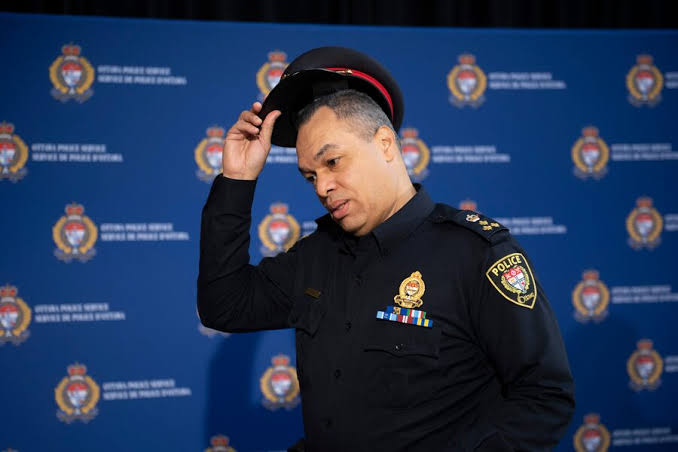Facebook Twitter (X) Instagram Somali Magazine - People's Magazine
The Deputy Chief of the Ottawa Police Service (OPS), Steve Bell, testified on Friday at the coroner’s inquest into the 2016 death of Abdirahman Abdi, a Somali-Canadian man with mental health challenges. The inquest, which began in November, aims to understand the circumstances surrounding Abdi’s death and provide recommendations to prevent similar tragedies.
The evidence phase has now concluded, with final submissions scheduled for Monday. A jury of five Ottawa-area civilians will then deliberate on recommendations.
The Death of Abdirahman Abdi
Abdirahman Abdi, aged 38, died in July 2016 following a violent arrest by two OPS officers. Witnesses described Abdi as behaving erratically at the time, and a 911 call had reported him for groping women in a café. Although dispatchers flagged potential mental health concerns, officers involved in the incident were unaware that Abdi had shown signs of schizophrenia earlier that month.
The inquest has heard testimonies from mental health experts, police officers, and community leaders, shedding light on systemic issues and the need for change within the OPS.
OPS Acknowledges “Fractured” Relationship with Somali Community
During his testimony, Bell acknowledged the OPS’s “very fractured” relationship with Ottawa’s Somali community, one of the largest in North America.
“That is a vitally important connection we have much more work to do on,” Bell said. He added that the Somali community has expressed concerns about insufficient progress on issues like anti-Black racism and police accountability.
Bell pledged to rebuild trust, emphasizing the importance of addressing the community’s needs and fostering better relations.
Steps Toward Change
Since Abdi’s death, the OPS has implemented several reforms aimed at improving its handling of mental health crises and racial issues. These include:
Enhanced Training: The OPS has expanded its training on de-escalation, anti-Black racism, and crisis intervention. However, Bell noted the department has not yet achieved a significant reduction in racialized individuals’ involvement in use-of-force incidents.
Mental Health Resources: The OPS plans to expand its mental health unit in 2025 and improve communication protocols for responding to mental health-related calls.
Review of Use-of-Force Practices: Bell highlighted the importance of scrutinizing use-of-force incidents, including the equipment and techniques employed by officers.
Controversial Training Video Sparks Criticism
The inquest revealed that some OPS officers in 2016 were shown a controversial training video depicting violent police clashes set to a motivational speech from the film Any Given Sunday.
Bell condemned the video as “inappropriate” and stated, “It had no business being in our training material.” He emphasized the force’s commitment to eliminating bias from its training programs.
Missed Oversight Opportunities
The OPS conducted an internal review of Abdi’s arrest, known as a Section 11 review. However, the findings were never submitted to the force’s civilian oversight board, violating legal requirements.
Bell attributed the oversight to leadership changes within the OPS and vowed to ensure similar errors are not repeated.
The Need for Community-Driven Solutions
The inquest has underscored the importance of community input in police reforms. Somali leaders in Ottawa have called for increased accountability and greater collaboration with the OPS to address systemic issues.
The jury’s forthcoming recommendations are expected to provide a roadmap for strengthening relations between the OPS and Ottawa’s Somali population while addressing broader issues of policing and racial equity.

